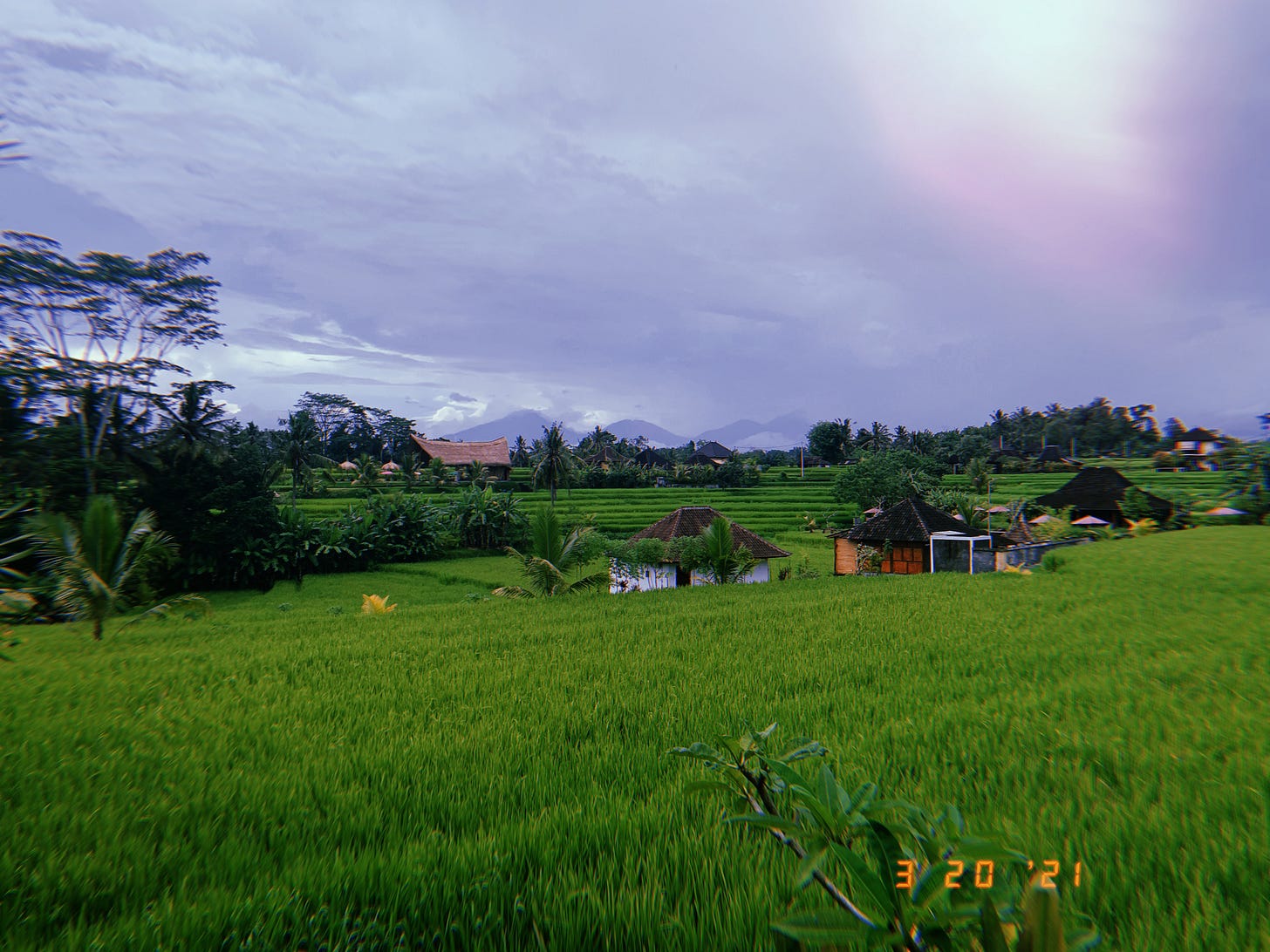What Americans Should Know About Indonesia, pt. 1
The world's biggest island nation is worth a deeper dive
I moved to Indonesia about two months ago, visa issues finally resolved. So far, I’ve lived in Jakarta (Java), Ubud (Bali), and Canggu (Bali).
I love it here. Indonesia is a country rich with history, culture, and spectacular nature. But American education barely even touches Vietnam, much less the rest of Southeast Asia, so Indonesia doesn’t make it deep into the bank of common knowledge in the States. To that end, I want to share some quick points I’ve learned during my time here. In this post I’ll cover basics, politics, and religion.
The basics
With 275 million people, Indo has the fourth largest population on the planet, behind only China, India, and the US.
Islam is the dominant religion, making Indo the largest Muslim country on the planet.
Indo is also the largest archipelago nation in the world, with over 17,000 islands.
Despite that shocking number, a little over half the population lives on Java, which has the four largest cities (Jakarta, Surabaya, Bekasi, and Bandung).
The capital is Jakarta, and it’s sinking as fast as 10 centimeters per year, which is forcing the government to relocate the capital over the next few decades.
Here’s a map. For comparison, the US is as wide as Sumatra to Maluku:
Religion
Indonesia is devoutly religious, and religion is indicated on your driver’s license (hope you fit into one of the eight provided categories!)
Although the country is 90% Muslim, geographically, the religious landscape changes quite a bit west-to-east. At the western tip of the country, Aceh in Sumatra practices Sharia. Sumatra, Java, Kalimantan, and Sulawesi are mostly Muslim, with pockets of Buddhism and Protestantism. Bali—the only spot westerners tend to know much about—is mostly Hindu. East of Bali, you get into a mix of Muslim-, Catholic-, and Protestant-dominant islands, with Papua being Protestant.
Because the government recognizes the country’s religious diversity, we get just about every religious holiday possible, except the Jewish ones… but hey, we don’t even get those in the US. Long weekends for Easter and Lebaran? Yes please.
Politics
The land that became Indonesia was under Dutch colonial rule for a while—some parts, like Jakarta (what was then Batavia) for over three centuries; others not until the 1930s. The Dutch were kicked out when the Japanese “liberated” the islands in 1942, then Indonesia became a united country after WWII.
Still have a lot to learn here, but it seems like there are three main political periods in postwar history:
The Old Order under Soekarno, Indonesia’s first President and a nationalist freedom fighter during the colonial period, who impressively managed to unite a sprawling archipelago full of disparate religions and customs that had never before been a single country. Indonesia struggled as a united country at first, though: the nationalists wanted a secular state, the Islamists wanted a theocracy, and the Communists wanted, well, Communism. Soekarno started to lean left towards the end of his presidency, but doesn’t seem to have become a full-fledged Communist.
The New Order came about when Suharto, Indonesia’s second President and a former general, took power after a failed coup attempt by the 30 September Movement in 1965. In a nutshell: in the mid-60s, the Indo military was split between a right-wing faction (into whose DMs the CIA was sliding) and a left-wing faction (who was worried about the right-wing faction’s increasing power). Some parts of the left-wing kidnapped and killed a handful of right-wing generals. This semi-coup failed; General Suharto took power and blamed the Communists, leading to a massively bloody anti-Communist purge (up to 1 million people died in the wake). Suharto reigned as an authoritarian for three decades.
The Modern Era, which started when Suharto’s rule collapsed during recession in the late-90s. During the last twenty years, Indonesia has become less authoritarian and a little less corrupt. The Economist calls the country a “flawed democracy.”
Jokowi is the current President. There are striking parallels between him and Obama that I didn’t expect:
He’s a young-ish leader who doesn’t come from a political dynasty or military background and whose predecessors include children of former Presidents.
He’s popular domestically, representing a step towards a “new way” for Indonesia, similar to how many saw Obama’s presidency as a mark of progress.
He struggles with the religiously conservative faction of the country. In fact, during his election, critics spread the conspiracy theory that he’s secretly Christian, rather than Muslim. It ain’t just us, folks.
idk I think they share a similar face structure in the right light:
And to compound the parallels, don’t forget that Obama spent four years of his childhood in Jakarta. If anybody knows of another prominent American who was partially raised in Indonesia, let me know in the comments—I’m wracking my brain and coming up empty.
I’ll get into more nuanced stuff in the next post. Sampai jumpa!






